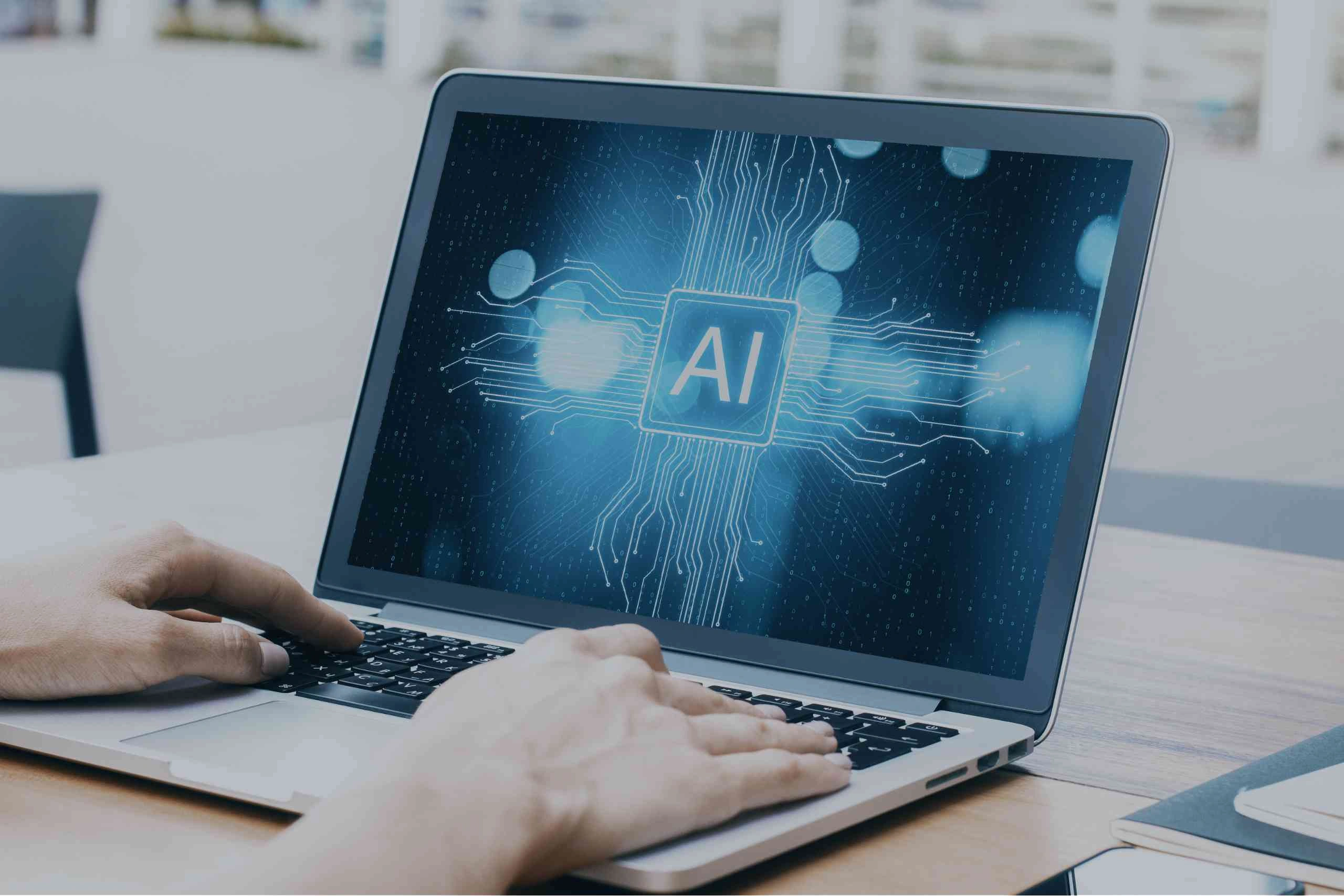The Role of AI in Shaping the Future of Business
Artificial intelligence (AI) is rapidly transforming the business landscape, reshaping industries, and redefining how companies operate. From automating routine tasks to enabling advanced data analytics, AI is empowering businesses to innovate, improve efficiency, and gain a competitive edge. As AI continues to evolve, its impact on the future of business will only grow, offering new opportunities and challenges. In this blog post, we’ll explore the key ways AI is shaping the future of business and how companies can harness its potential to drive growth and success.
1. Enhancing Decision-Making with Data-Driven Insights
In the digital age, data is a valuable asset for businesses. However, the sheer volume of data generated can be overwhelming, making it difficult for companies to extract actionable insights. AI is revolutionizing decision-making by enabling businesses to analyze vast amounts of data quickly and accurately.
- Predictive Analytics: AI-powered predictive analytics uses historical data to forecast future trends, customer behavior, and market conditions. By identifying patterns and correlations, AI can help businesses anticipate changes, optimize strategies, and make informed decisions. For example, retailers can use predictive analytics to forecast demand for products, adjust inventory levels, and tailor marketing campaigns to target specific customer segments.
- Real-Time Analytics: AI enables real-time data processing and analysis, allowing businesses to respond to changes as they happen. This capability is particularly valuable in industries like finance, where market conditions can change rapidly. With AI-driven real-time analytics, businesses can make quick, data-driven decisions that help them stay ahead of the competition.
- Personalized Recommendations: AI can analyze customer data to provide personalized recommendations, enhancing the customer experience and driving sales. E-commerce platforms like Amazon and Netflix use AI algorithms to recommend products and content based on users’ browsing history, preferences, and behavior. This level of personalization not only increases customer satisfaction but also boosts conversion rates.
2. Automating Routine Tasks and Improving Efficiency
One of the most significant impacts of AI on business is its ability to automate routine and repetitive tasks. Automation frees up employees to focus on higher-value activities, leading to increased productivity and efficiency.
- Robotic Process Automation (RPA): RPA is a type of AI that automates rule-based tasks, such as data entry, invoice processing, and customer support. By automating these tasks, businesses can reduce errors, save time, and lower operational costs. For example, banks use RPA to automate the processing of loan applications, reducing the time it takes to approve a loan and improving customer satisfaction.
- Intelligent Automation: AI-driven intelligent automation goes beyond simple task automation by incorporating machine learning and natural language processing (NLP). This allows AI systems to handle more complex tasks, such as analyzing unstructured data, understanding customer inquiries, and making decisions. For instance, AI-powered chatbots can handle customer service inquiries, answer questions, and resolve issues without human intervention.
- Supply Chain Optimization: AI is also transforming supply chain management by automating processes like demand forecasting, inventory management, and logistics planning. AI algorithms can analyze historical data, market trends, and external factors to optimize supply chain operations, reduce costs, and improve delivery times. Companies like Amazon and Walmart leverage AI to streamline their supply chains and ensure products are delivered efficiently.
3. Revolutionizing Customer Experience
Customer experience is a critical factor in business success, and AI is playing a pivotal role in enhancing how companies interact with their customers. By leveraging AI, businesses can deliver personalized, seamless, and efficient experiences that build customer loyalty and drive growth.
- Chatbots and Virtual Assistants: AI-powered chatbots and virtual assistants are becoming increasingly common in customer service. These AI tools can handle a wide range of tasks, from answering frequently asked questions to assisting with product selection and processing orders. By providing instant, 24/7 support, chatbots improve customer satisfaction and reduce the workload on human agents. For example, companies like Sephora use AI chatbots to offer personalized beauty advice and product recommendations to customers.
- Sentiment Analysis: AI-driven sentiment analysis enables businesses to monitor and analyze customer feedback, reviews, and social media mentions. By understanding customer sentiment, companies can identify areas for improvement, address negative feedback, and tailor their offerings to better meet customer needs. This real-time insight allows businesses to be more responsive and proactive in managing their brand reputation.
- Personalized Marketing: AI is revolutionizing marketing by enabling hyper-personalization. AI algorithms can analyze customer data to create highly targeted marketing campaigns that resonate with individual preferences and behaviors. For example, AI can optimize email marketing by determining the best time to send messages, selecting the most relevant content, and personalizing subject lines. This level of personalization increases engagement, click-through rates, and conversions.
4. Driving Innovation and New Business Models
AI is not only improving existing business processes but also driving innovation and enabling the development of new business models. Companies that embrace AI can unlock new revenue streams, disrupt traditional industries, and create entirely new markets.
- AI-Driven Product Development: AI can accelerate product development by analyzing market trends, customer feedback, and competitive data. For example, AI can help companies identify gaps in the market, predict future demand, and design products that meet emerging customer needs. In the automotive industry, AI is being used to develop autonomous vehicles, which have the potential to revolutionize transportation and create new business models in ride-sharing and logistics.
- New Revenue Streams: AI is enabling companies to monetize data and create new revenue streams. For instance, businesses can use AI to analyze customer data and offer targeted advertising or subscription-based services. In the healthcare industry, AI-powered platforms can analyze patient data to provide personalized treatment recommendations, which can be offered as a premium service to patients.
- Disrupting Traditional Industries: AI is disrupting traditional industries by enabling new ways of delivering products and services. For example, the rise of AI-driven fintech companies is challenging traditional banking by offering faster, more efficient financial services. Similarly, AI-powered platforms like Airbnb and Uber have disrupted the hospitality and transportation industries by creating new business models that leverage data and algorithms to match supply with demand.
5. Addressing Ethical and Regulatory Challenges
As AI becomes more integrated into business operations, companies must navigate ethical and regulatory challenges. Ensuring that AI is used responsibly and transparently is critical to maintaining trust with customers, employees, and stakeholders.
- Bias and Fairness: AI algorithms can inadvertently introduce bias, leading to unfair outcomes in areas like hiring, lending, and law enforcement. Businesses must take steps to ensure that their AI systems are free from bias and that decisions are made fairly. This includes regularly auditing AI models, using diverse training data, and implementing bias detection tools.
- Data Privacy: AI relies on vast amounts of data, raising concerns about data privacy and security. Companies must comply with data protection regulations, such as GDPR and CCPA, and ensure that customer data is handled securely and transparently. This includes obtaining consent for data collection, anonymizing data where possible, and implementing robust cybersecurity measures.
- Transparency and Accountability: As AI systems become more complex, it can be challenging to understand how decisions are made. Companies must ensure transparency in their AI operations by providing clear explanations of how AI models work and how decisions are made. Additionally, businesses should establish accountability frameworks to address any negative outcomes resulting from AI decisions.
6. Preparing for the AI-Driven Future
As AI continues to shape the future of business, companies must prepare for the changes and opportunities it brings. This requires a forward-thinking approach that includes investing in AI talent, fostering a culture of innovation, and staying informed about AI trends and developments.
- AI Talent: Building a workforce with AI expertise is essential for businesses looking to leverage AI effectively. This includes hiring data scientists, machine learning engineers, and AI specialists, as well as providing training and upskilling opportunities for existing employees.
- Culture of Innovation: Embracing AI requires a culture of innovation that encourages experimentation and risk-taking. Companies should foster an environment where employees are encouraged to explore new ideas, test AI solutions, and collaborate across departments.
- Staying Informed: The AI landscape is constantly evolving, with new technologies and applications emerging regularly. Companies must stay informed about the latest AI trends, developments, and best practices to remain competitive and capitalize on new opportunities.
AI is undoubtedly shaping the future of business, offering transformative opportunities for companies to innovate, improve efficiency, and enhance customer experiences. By embracing AI and addressing the associated challenges, businesses can position themselves for long-term success in an increasingly AI-driven world. As AI continues to evolve, companies that invest in AI talent, foster a culture of innovation, and stay ahead of the curve will be well-equipped to thrive in the future.







